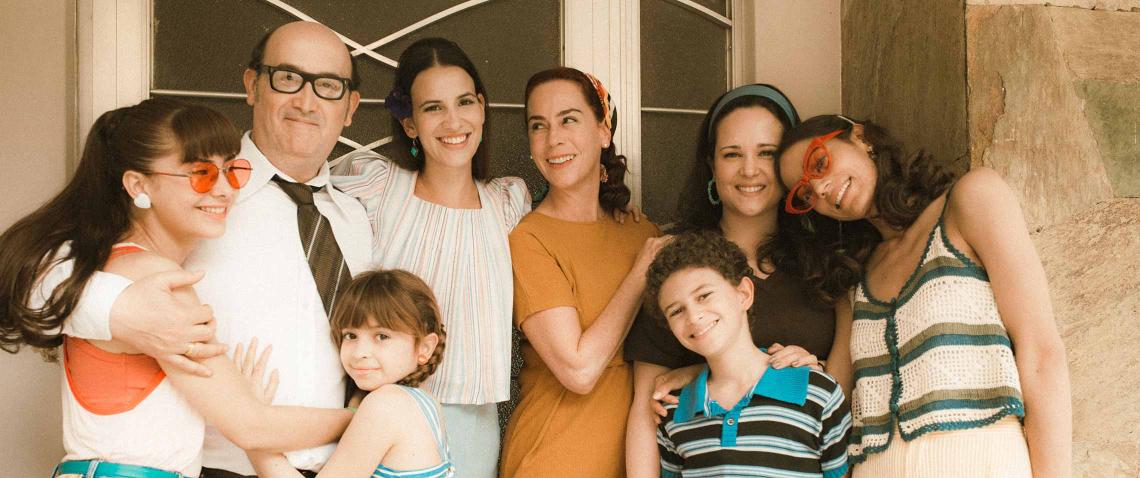When Fernando Trueba was approached by Colombian writer Héctor Abad Faciolince to turn his memoir of his father into a movie, the Oscar-winning Spanish film director was flattered but thought the idea was crazy.
Trueba, whose Belle Époque won the Oscar for Best Foreign Language Film in 1994, was a big fan of the book, El Olvido Que Seremos (published in English as Oblivion: A Memoir).
“I bought it just after it came out in around 2007,” he says, speaking by Zoom from his home in Madrid. “My wife read it just before me and she was crying her eyes out and telling me how much I would love that book. I read it and loved it too, but the idea of making a movie out of it never occurred to me. I just thought it was a beautiful story of this son putting together his memoirs of his father [human rights activist Héctor Abad Gómez] and their relationship and how much his father influenced things.”
Héctor Abad Gómez was an outspoken doctor and university lecturer who pioneered and health programs for the poor in Colombia. But in doing so made enemies in politics and the church, and was gunned down in the streets of Medellín in 1987.
‘It can’t be done’ says Fernando Trueba himself
Some years after Fernando Trueba read the book, “Héctor Abad Faciolince contacted me with the proposition of making this movie and I told him, ‘I love the book, I’m very flattered that you thought of me for making this but I’m sorry, it’s completely crazy, it can’t be made’. And I told him that I think that maybe it shouldn’t be made.”
Strangely enough, the film that Fernando Trueba felt couldn’t and shouldn’t be made is now showing at the Spanish Film Festival in Australia. Its English language title here is Forgotten We’ll Be. In some other English-speaking countries it has been released as Memories of My Father.
One reason Trueba thought it couldn’t be made into a film was because “it’s too personal, too intimate”. But the main reason was more practical. “About 25 years passed from the first page to the last one of the book and that’s an impossible task to achieve in cinema, or at least a really difficult one that in at least 90 per cent of times cinema gets wrong,” Trueba says, laughing.
The trap is laid
As they said their goodbyes, though, Héctor pleaded with Trueba to re-read the book, to see if there was any way of turning it into a cinematic story. “I will,” Trueba promised, “but I don’t think I’m going to change my mind. I can tell you that from the start.”
Then, “I don’t know how, but I fell into the trap,” Trueba says, laughing. “I started thinking about the ways the book could be made into a movie. I started to think, maybe if we concentrate the whole story in two moments – one of the childhood of the boy, the other around the end of the father – that could be the thing. But how do you cast it? With the boy you obviously need two actors, but maybe for the rest – the father, the mother and the sisters – you can have actors and actresses who are in the middle of these two moments, so that you can make them a bit younger and make them a bit older.”
Colombians Nicolás Reyes Cano and Juan Pablo Urrego play the younger and older versions of Hector Jr, while Spanish actor Javier Cámara (whom you’ll recognise from his trio of Pedro Almodóvar films, notably Talk To Her) stars as Héctor Sr.
Honours and awards
Fernando Trueba went to great lengths to make El Olvido Que Seremos/Forgotten We’ll Be as authentically Colombian as possible. “You have to be careful because, firstly, they speak Spanish with a completely different accent,” he says, but it’s not as simple as striving for a Colombian accent. “In Bogota there is a different accent and in Medellin there’s a different accent; and then this doctor who was from Medellin had a particular accent, not the one that you hear in the streets of Medellin.
“We had to reproduce all these things very carefully, and not arrive like sometimes the Americans arrive in Colombia and they have Spaniards and Brazilians and everyone speaking a different Spanish … Maybe it’s not important for an American audience, but I think for the seriousness of the project it’s a very touristic way to approach it. I didn’t want to fall into that, so I tried to be careful of this.”
He succeeded. El Olvido Que Seremos was warmly embraced locally; so much so that it was the Colombian entry for the Best International Feature Film in the 2021 Oscars. Though it didn’t make the final nominations, it has scooped prizes elsewhere.
- Best Ibero-American Film at the 2021 Goya Awards
- Best Film, Best Director, Best Actor (for Javier Cámara), Best Screenplay and Best Art Director at The Platino Awards for Ibero-american Cinema 2021. M5R
Photos courtesy of the Moro Spanish Film Festival.


